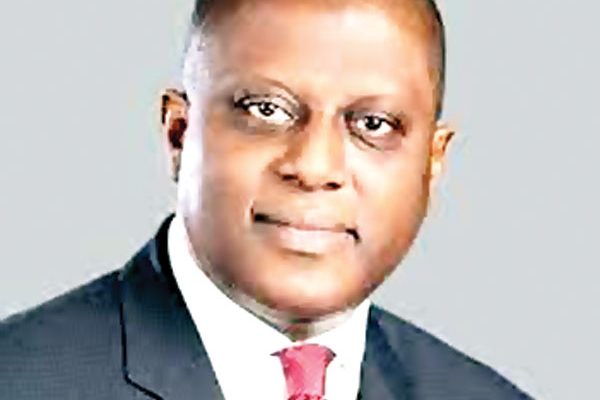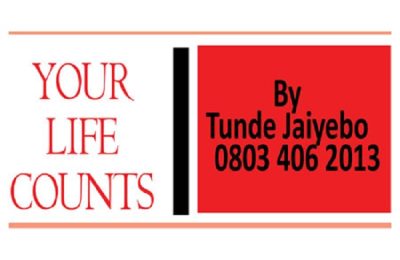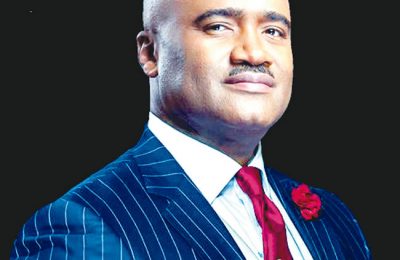
The Monetary Policy Committee (MPC) of the Central Bank of Nigeria (CBN) has continued its tightening posture, raising the Monetary Policy Rate (MPR) by 150 basis points to 26.25 percent from 24.75 percent.
Addressing journalists on Tuesday after the MPC meeting in Abuja, Mr. Olayemi Cardoso, Governor of the Central Bank of Nigeria, stated that the MPC retained the Asymmetric corridor at +100/-300 basis points.

The CBN retained the Cash Reserve Ratio (CRR) of Deposit Money Banks (DMBs) at 45 percent and Liquidity Ratio at 30 percent.
Mr. Cardoso pointed out that the key focus of the CBN remains to achieve price stability, using monetary policy tools to rein in inflation, adding that past tightening stance of the Bank has started yielding positive results.
The CBN Governor reiterated that the key focus of the MPC at this meeting remained to achieve price stability by effectively using tools available to the monetary authority to rein in inflation.
He noted that members observed that while year-on-year headline inflation in April 2024 rose moderately, the month-on-month measures of headline, food and core all declined significantly.
This, he said, follows a decline (month-on-month) of headline and food measures in March 2024, suggesting that the recent tight monetary policy stance of the Bank is beginning to yield the desired outcomes.
“The MPC, however, noted that the inflationary pressure continues to be driven largely by food inflation. The Committee thus reiterated several challenges confronting the effective moderation of food inflation to include: rising cost of transportation of farm produce; infrastructure-related constraints along the line of distribution network; security challenges in some food producing areas; and exchange rate pass-through to domestic prices for imported food items.
“The MPC urged that more be done to address the security of farming communities to guarantee improved food production in these areas.”
Members further observed the recent volatility in the foreign exchange market, attributing this to seasonal demand, a reflection of the interplay between demand and supply in a freely functioning market system.
The Committee also noted the marginal increase in the external reserve balance between March and April 2024 and urged the Bank to sustain its focus on accretion to reserves.
The MPC commended the Bank for the recent approval of licenses of 14 international Money Transfer operators (IMTOs), this, it noted is expected to improve competition and lower the cost of transactions, thus attracting more remittances through formal channels.
The Committee noted with satisfaction that the banking system remains safe,
sound, and stable, despite the headwinds confronting the economy.
It commended the recent recapitalization initiative and urged the management to sustain its regulatory oversight to ensure the continued stability of the banking system.
Meanwhile, the hike in the MPR by the CBN has elicited varied reactions from experts and the organised private sector.
They said the increase in the benchmark interest rate will most likely have an adverse consequence on the equities market given the inverse relationship between interest rates and equities market returns, and has the potential of triggering portfolio rebalancing in favour of fixed income securities.
According to them, although a rigid monetarist disposition by the Central Bank is expected, the country needs to reckon with the costs to the economy as the new rate hike is an additional cross to be borne by investors who have exposures to bank credit facilities.
In his reaction, Professor Uchenna Uwaleke, Director, Institute of Capital Market Studies, Nasarawa State University Keffi said: “The hike in the MPR by a further 150bps will most likely have an adverse consequence on the equities market given the inverse relationship between interest rates and equities market returns.
“It has the potential of triggering portfolio rebalancing in favour of fixed income securities.
“If I were a member of the MPC, I would have voted for a hold position as the aggressive policy rate hike is taking a toll on output. Production is stiffled because of very high cost of funds.
“Moreover, the seeming over reliance on the MPR as a tool to tame inflation does not appear to be making any meaningful impact due to the significant non-monetary factors driving inflation in Nigeria such as high cost of energy, transport as well as insecurity in the food-belt regions of the country.
Speaking on the new interest rate increase, a finance expert, public analyst and CEO, Wealthgate Advisor, Mr. Biyi Adesuyi, expressed concerns that the new rates might add to the myriad of challenges facing the nation’s manufacturing sector.
According to him, what this means is that manufacturers that have taken loans will have to.pay more, while those planning to borrow should be ready to also do that at a higher cost.
“At the end of the day, what we are likely to see is a decline in production, and a huge stack of un-patronised finished products, due to their exorbitant costs.
“Nigerians, especially the consumers must be ready to pay more since the costs incurred by the few that are able to produce, will definitely be passed down to them.
“When you take loan from the bank, the cost will be higher, due to the increased interest rates. Cost of production will also become higher, while consumer loan won’t be spared,” he stated.
Adesuyi, however, believes the only attraction is that the deposit side is likely to be positively affected.
“When interest rates are high, it will encourage people to bring their money to the banks for saving. That is the intention of the decision: to encourage more savings and stabilise the naira.
“Unfortunately, this doesn’t seem to be working for now, since we still have huge amount of money outside the banking system, and as a result, not affected by any policy coming from the monetary authorities,” he added.
In the same vein, Dr. Muda Yusuf, CEO Centre for the Promotion of Private Enterprise (CPPE) commented on the MPC meeting outcome: thus: “We have seen yet a further tightening of monetary conditions in the economy. My prayer was for the MPC to pause the rate hikes for a number of reasons.
“First, previous rate hikes have been quite aggressive, hurting output and real sector investments. Most economic operators with credit exposures to the banks have not recovered from previous hikes. Interest rates were already around 30% threshold.
“Secondly, extant CRR of 45% has profound liquidity effects on the financial system. Both measures have dampening effects on financial intermediation, which is the primary role of banks in an economy.
“Thirdly, the monetary policy transmission channels are still very weak, given the level of financial inclusion in the economy. This limits the prospects of monetary policy effectiveness.
“Meanwhile, the new rate hike is an additional cross to be borne by investors who have exposures to bank credit facilities. Naturally, a rigid monetarist disposition by the Central Bank is expected. But we need to reckon with the costs to the economy.
“Hopefully, with the positive outlook for domestic refining of petroleum products, we may begin to see a moderation in energy cost and a pass through effect on general price level. This is one silver lining that is on the horizon at the moment.
“Necessary fiscal policy support are urgently needed to compensate for the adverse impact of extreme monetarism on the economy,” he said.
On the 0.5 percent cybersecurity levy, Mr. Cardoso explained that the CBN merely implemented a law that was enacted, and when the Federal Government shifted its stance, the apex bank had to withdraw it.
A herd of finance and economic experts at Comercio Partners, a Nigerian investment firm headquartered in Lagos said this hawkish stance is designed to combat soaring inflation and stabilize the naira.
But despite the challenging economic climate, the CBN’s steadfast stance against inflation carries potential risks, including businesses struggling with rising production costs, diminishing demand, forex crises, and other pertinent challenges that may lead to the gradual erosion of economic vitality.
“The Apex Bank’s rate hike is expected to exert increased strain on the economy, particularly on businesses. The economy, already grappling with numerous social and economic challenges, may face further destabilization. An increase in the minimum cost of borrowing could slow down the corporate sector, potentially leading to a decline in the stock market,” the experts said.
Additionally, the recent interest rate hike is expected to stimulate activity in the fixed-income market by making new securities more attractive. New bonds will be issued with higher yields to reflect the increased policy rate. Investors will demand higher returns to compensate for the elevated interest rate environment. As a result, long-duration bonds, which are more sensitive to interest rate changes, are likely to experience greater price declines compared to short-duration bonds as rates rise.
“On the macroeconomic front, the increased interest rate may slow GDP growth and hinder stock market appreciation. Furthermore, this policy could exacerbate the unemployment issue facing the Nigerian economy. Despite these challenges, there is a slim possibility that inflation rates may ease somewhat by the end of the year,” Commercio Partners’ investment analysts submitted.
They expressed concern that effects of interest rate changes on inflation are not immediate. It often takes several months for monetary policy adjustments to permeate through the economy.
The experts warn that businesses and individuals may struggle to service loans as interest rates rise, potentially leading to an increase in non-performing loans for banks.
Furthermore, there’s a risk that the rate hike could slow economic growth without effectively controlling inflation, leading to stagflation (stagnant growth with high inflation).
The analysts stated that conventional wisdom suggests that higher interest rates should curb borrowing, reduce available credit, and ultimately lower inflation. However, the empirical evidence in Nigeria, tells a different story.
The connection between interest rates and inflation in Nigeria is complex and unpredictable. While rate hikes are intended to control inflation, their impact can be slow and uncertain. Various other factors, such as supply chain disruptions and global food price increases, also play significant roles in driving inflation.
In the short term, the effectiveness of rate hikes would be directed to attracting dollar inflow and strengthening the currency, as Nigeria is import-dependent. When the exchange rate strengthens, inflation should reduce.
According to the analysts, while the recent moderation in monthly inflation figures offers a glimmer of hope, the persistent rise in headline inflation remains a significant concern.
The Nigeria Employers’ Consultative Association (NECA) has said the apex bank’s successive increase in the Monetary Policy Rate (MPR) will continue to hurt investment decisions in the private sector.
NECA’s Director-General, Mr Adewale-Smatt Oyerinde, expressed the view in a statement on Tuesday.
According to him, the new policy rate of 26.25 percent will further affect private investment negatively.
“It is implausible to control the current high inflation by continuously raising interest rate.
“Implementing tight monetary policy stance when firms’ investment expenditure and household consumption is at the lowest ebb may further incapacitate production and capacity utilisation in the already challenged private sector, “ he said.
The NECA boss said that the persistent high depreciation in the value of Naira would continue to feed inflation, while constraining firms investment and household consumption.
He said, consequently, raising policy rate would further exacerbate inflationary pressure as growth in factor costs and commodity prices become unbounded.
Oyerinde attributed the defying inflationary pressure to the liberalisation of FX in the country, notwithstanding that the economy was heavily import dependent.
He said that before the total floating FX regime was implemented, the economy was better-off with inflation anchoring below 20 percent mark.
“Consequently, I urge the government to reconsider the guided FX floating regime, which is a dynamic and flexible FX management regime and has proven to be better than the current regime, “ Oyerinde said.
ALSO READ: 2027: Atiku, Obi united by mutual desperation —APC







